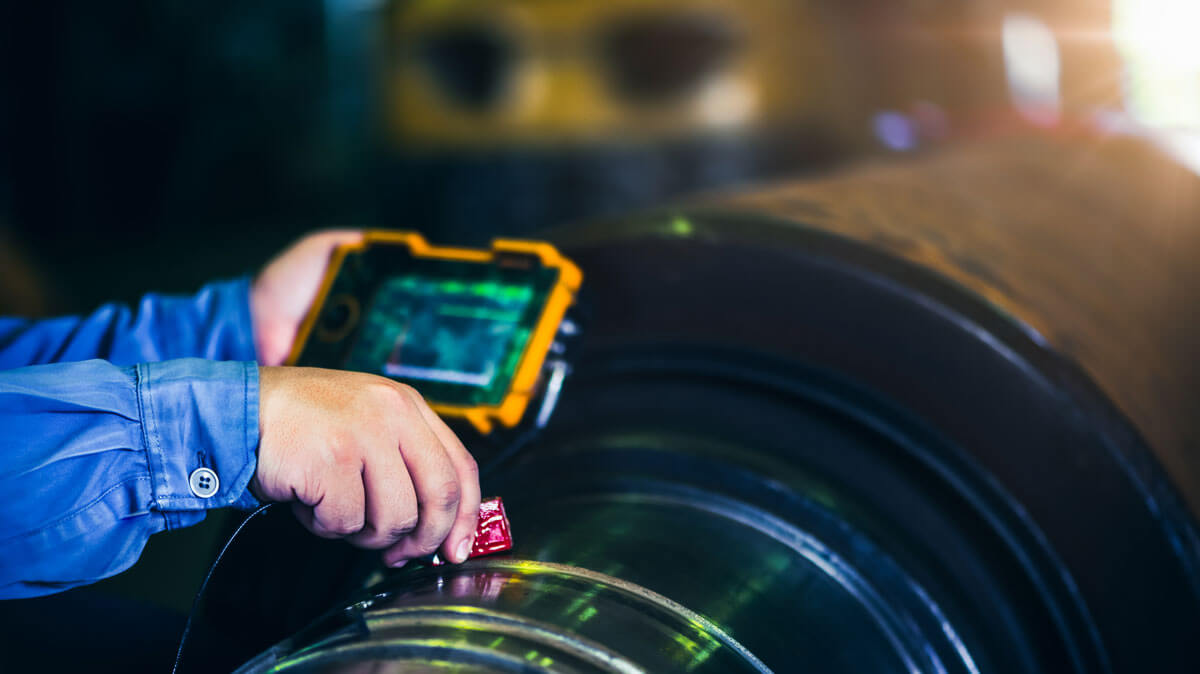Why Choose Specialist Welding Inspection Madison for Your Jobs
Why Choose Specialist Welding Inspection Madison for Your Jobs
Blog Article
The Value of Thorough Welding Examination in Industrial Applications
In the realm of commercial applications, the value of careful welding examination can not be overemphasized. It plays an essential function in ensuring the structural integrity and durability of welded parts. Advanced non-destructive screening techniques enable for the very early discovery of possible problems, such as fractures and incomplete fusion, which, if left uncontrolled, can result in devastating failings. In addition, adherence to strict sector standards not just assures quality but additionally develops customer confidence. As we explore the diverse benefits of diligent welding assessments, one should consider the wider effects on safety and security, reliability, and cost-effectiveness in commercial operations.
Enhancing Structural Integrity
When it comes to welding assessment in commercial applications, enhancing structural integrity is vital. The primary goal of welding examination is to make sure that the welds are capable of birthing the expected stresses and tons they will certainly experience in solution.
The significance of maintaining architectural stability in bonded structures can not be overemphasized. Poorly implemented welds can result in disastrous failings, resulting in costly repairs, downtime, and even endangerment of human lives. Assessors play an important duty in the lifecycle of industrial parts, providing assurance that the welding process provides the wanted stamina and durability.
Additionally, progressed modern technologies, such as phased range ultrasonic testing and digital radiography, offer enhanced capacities in spotting possible weaknesses, enabling corrective steps prior to issues escalate. By focusing on the integrity of welds with careful inspection, industries can make certain operational efficiency and expand the durability of their facilities.
Identifying Welding Defects
Determining welding problems is a critical facet of making certain the security and reliability of bonded structures. Common welding defects consist of porosity, splits, incomplete blend, and undercutting.

Skilled inspectors make use of both visual assessment and advanced non-destructive screening (NDT) approaches, such as ultrasonic or radiographic testing, to spot these flaws. The timely recognition and rectification of welding defects are essential to keep the structural stability and durability of commercial components.
Ensuring Conformity Standards
Keeping the stability of bonded frameworks prolongs beyond determining defects; it calls for adherence to rigid conformity requirements. Compliance with recognized criteria, such as those provided by the American Welding Culture (AWS) and the International Organization for Standardization (ISO), ensures that welds satisfy minimal security and high quality demands. These criteria encompass a variety of criteria, including product specs, welding procedures, and certification of welders. Adherence to these requirements is vital to stop structural failings, which could cause devastating repercussions in commercial applications.
Routine audits and inspections are necessary in verifying compliance. Examiners should possess a comprehensive understanding of the relevant requirements and be proficient at using different non-destructive screening (NDT) techniques to review weld quality. By ensuring that welding methods straighten with conformity standards, firms reduce the risk of non-conformity, which can lead to legal liabilities and security threats.
In addition, preserving compliance not only safeguards structural honesty but also enhances a company's track record in the industry. Stakeholders and clients are more probable to trust fund companies that regularly demonstrate a dedication to quality and security with strenuous conformity. Hence, making certain compliance requirements is a vital component in the effective execution of welding in commercial applications.
Reducing Upkeep Prices

The application of sophisticated non-destructive screening (NDT) methods, consisting of ultrasonic, radiographic, and magnetic particle examinations, boosts the ability to detect subsurface problems without jeopardizing the architectural honesty of parts. By using these methods, markets can significantly prolong the service life of their tools, minimizing downtime and the associated economic worry of upkeep tasks.
Moreover, a robust welding inspection regime sustains the optimization of maintenance timetables, moving from responsive to predictive upkeep strategies. This positive technique not only cuts unanticipated failures however likewise simplifies resource appropriation, making sure that maintenance initiatives are concentrated and effective. Inevitably, the investment in extensive welding examination is offset by the considerable cost savings recognized through lowered maintenance needs, adding positively to the general functional effectiveness of industrial enterprises.
Improving Precaution
Although safety is a critical issue in industrial operations, accomplishing ideal safety and security criteria calls for a specialized emphasis on the top quality and integrity of bonded structures. Welding evaluation plays a site here critical duty in this context, as it guarantees that all joints and links satisfy strict safety and security standards. Comprehensive evaluations help determine problems such as cracks, porosity, or insufficient blend that could compromise architectural honesty. Such issues, if left unaddressed, posture considerable risks, possibly causing disastrous failures.
Methods Look At This like ultrasonic testing, radiographic testing, and magnetic bit inspection allow for thorough evaluation without harming the structure. Executing a durable quality control system that includes regular training for examiners and welders makes certain adherence to established security criteria.
Lastly, fostering a culture of safety within the organization stresses the relevance of comprehensive welding examinations. Urging open interaction and cooperation among welders, inspectors, and engineers contributes to a shared dedication to security quality. Welding Inspection Madison. In doing so, sectors can guard their operations, protect employees, and keep public trust

Conclusion
Complete welding inspection is vital in industrial applications, significantly enhancing structural integrity and integrity. Ultimately, the thorough implementation of welding evaluations plays a vital role in preserving operational efficiency and safety and security in industrial settings.
As we discover the multifaceted advantages of attentive welding inspections, one must take into consideration the more comprehensive effects on security, integrity, and cost-effectiveness in industrial procedures.
The main objective of welding assessment is to ensure that the welds are capable of birthing the anticipated stress and anxieties and lots they will certainly experience in solution. Reliable welding examination plays an integral duty in minimizing these costs by making sure the integrity and long life of welds, thereby alleviating the threat of premature failings.Comprehensive try this website welding examination is indispensable in commercial applications, dramatically enhancing structural integrity and reliability. Ultimately, the thorough execution of welding inspections plays a crucial role in maintaining operational performance and safety and security in commercial setups.
Report this page